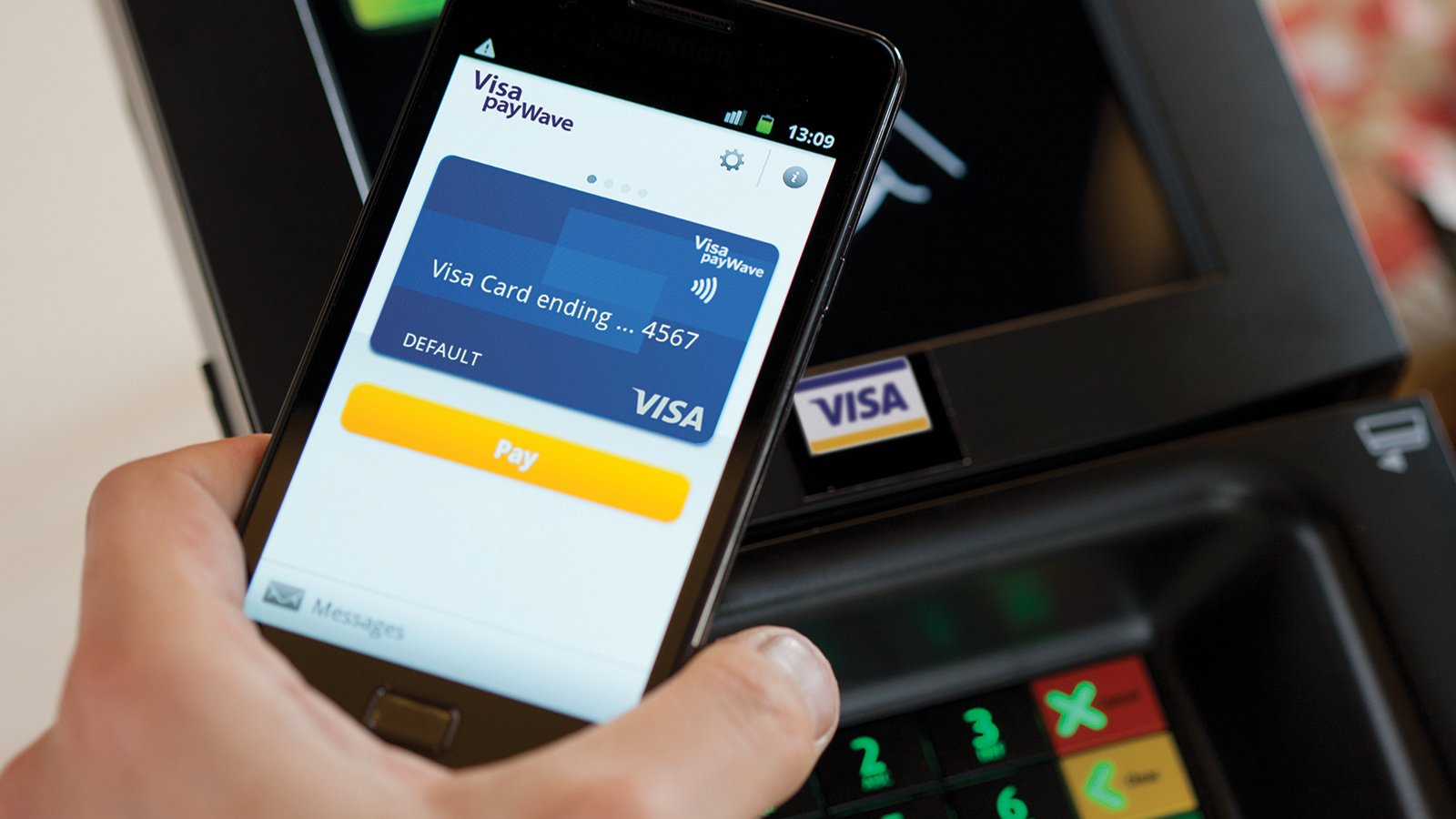Provisioning mobile and digital payments through the use of tokens minimizes the risk of fraudulent use of data if the device or account is compromised. Visa Token Service is based on the EMVCo payment tokenization standard and aligns with EMV technology—the global requirement for secure payments that also protects businesses from fraud liability.
Overview
Visa Token Service can help you build and maintain your digital payment experiences while protecting consumers’ sensitive information from fraud.

Why Visa Token Service
Keep up with the future of digital payments
As more consumers make purchases using a mobile device, the payments industry must deliver a safe and simple purchase experience no matter the location or device.
Three turnkey tools
Visa Token Service comprises three turnkey parts: token management services, Visa Token Vault and Visa Risk Manager.
Token management services
- Service Enrolment: Enrol and configure your digital credit and debit products into the token service.
- Provisioning: Deliver tokens to authorized internet-connected devices and mobile applications for payment.
- Lifecycle Management: Suspend, resume or delete tokens in the payment network and on devices.
- Active Key Management: Access security and controls including domain restrictions.
- Card Metadata Manager: Manage the card data and art presented to consumers.
- Reporting: Analyze and gain insights from performance metrics and operational performance.

Visa Token Vault
Store tokens and their domain restrictions in a secure digital vault, and links tokens to a cardholder’s PAN for payment processing.

Visa Risk Manager
Place controls on digital credit and debit products that enable you to respond faster to emerging fraud schemes and stop high-risk transactions.
Get started with the Visa Digital Enablement Program
Visa’s Digital Enablement Program provides streamlined access to Visa Token Service.
Q + A
Answers to commonly asked questions about Visa Token Service.
-
Payment tokenization is the process of replacing the traditional payment card account number with a unique digital token in online and mobile transactions. Tokens can be restricted for transactions with a specific mobile device, merchant, or transaction type. The tokenization process happens in the background in a way that is invisible to the consumer.
-
In October 2013, Visa, MasterCard and American Express proposed a new standard for digital payments. EMVCo - the global standards organization that oversees EMV specifications to ensure interoperability and acceptance - has since built on this framework with input from EMVCo’s members and the industry to advance availability and adoption of tokens around the world. EMVCo published the initial version of the specification in March 2014. The development of a global standard will help enable a new generation of payment products, while maintaining compatibility with the existing payments infrastructure.
-
We live in a “connected” world. As more consumers make purchases online with smart phones, tablets and PCs, the payments industry is focused on delivering a safe, secure, simple and consistent consumer purchasing experience, regardless of where they are and what device they are using. The development of a global standard will help enable a new generation of payment products, while maintaining compatibility with the existing payments infrastructure.
-
EMVCo, the global standards organization that oversees EMV specifications, has expanded its scope to also develop tokenization specifications. EMVCo has built the framework with input from EMVCo’s members and the industry as we collectively seek to advance availability and adoption of tokens around the world. EMVCo published the initial version of the specification in March 2014.
-
Tokens help to simplify the purchasing experience for consumers by largely eliminating the need to enter and re-enter the account number when shopping on a smart phone, tablet or PC. Tokens can also help prevent fraud in e-commerce and m-commerce transactions by removing sensitive card account information from the payment process. Finally, merchants and digital payment providers can store payment tokens in place of payment account numbers, this
further enhances payment security.Payment tokens can also include additional data fields to provide richer information about the transaction helping to improve transaction efficiency and security, and provide more information about the circumstances under which the transaction was initiated.
-
Industry Standard
Visa participated in the development of a cross-industry standard which provides a globally consistent approach to payment tokens. Elements of the standard include token creation and de-tokenization, new data fields in authorization, clearing and settlement, and token identification and verification services.
VisaNet Processing
In April, Visa published mandatory changes by June 2014 (as outlined in April 2014 Technical Letter).
All U.S. VisaNet endpoints must be capable of recognizing and processing payment token-related data; a critical step in migration to payment token processing.
Visa Payment Token Service
Visa’s token service is now available to issuers. The service helps issuers manage the life cycle of payment tokens, as well as detokenize a Visa-created token when necessary. It can also support issuance of multiple tokens for a single account, each tied to a specific mobile device or service. The service is aligned with the requirements outlined in the EMVCo specification.
-
A virtual card is typically a one-time use account number that can be used for online purchases. A token can be used for multiple purchases, and can be restricted in how it is used with a specific merchant, device, transaction or category of transactions.
-
Payment tokenization offers significant benefits to all stakeholder groups:
Issuers should see a decrease in e-commerce and m-commerce fraud and its associated costs (fraud losses, exception handling, customer service and card re-issuance).
Acquirers and processors should experience a reduced threat of sensitive cardholder data being usable by fraudsters if compromised.
Merchants and their service providers should experience a reduced threat of sensitive payment data being usable by fraudsters if compromised.
Merchants will also have a powerful tool that will allow them to develop innovative retail experiences without the burden of handling this sensitive payment account data.
Tokens help to simplify the purchasing experience for consumers by largely eliminating the need to enter and re-enter the account number when shopping on a smart phone, tablet or PC.



